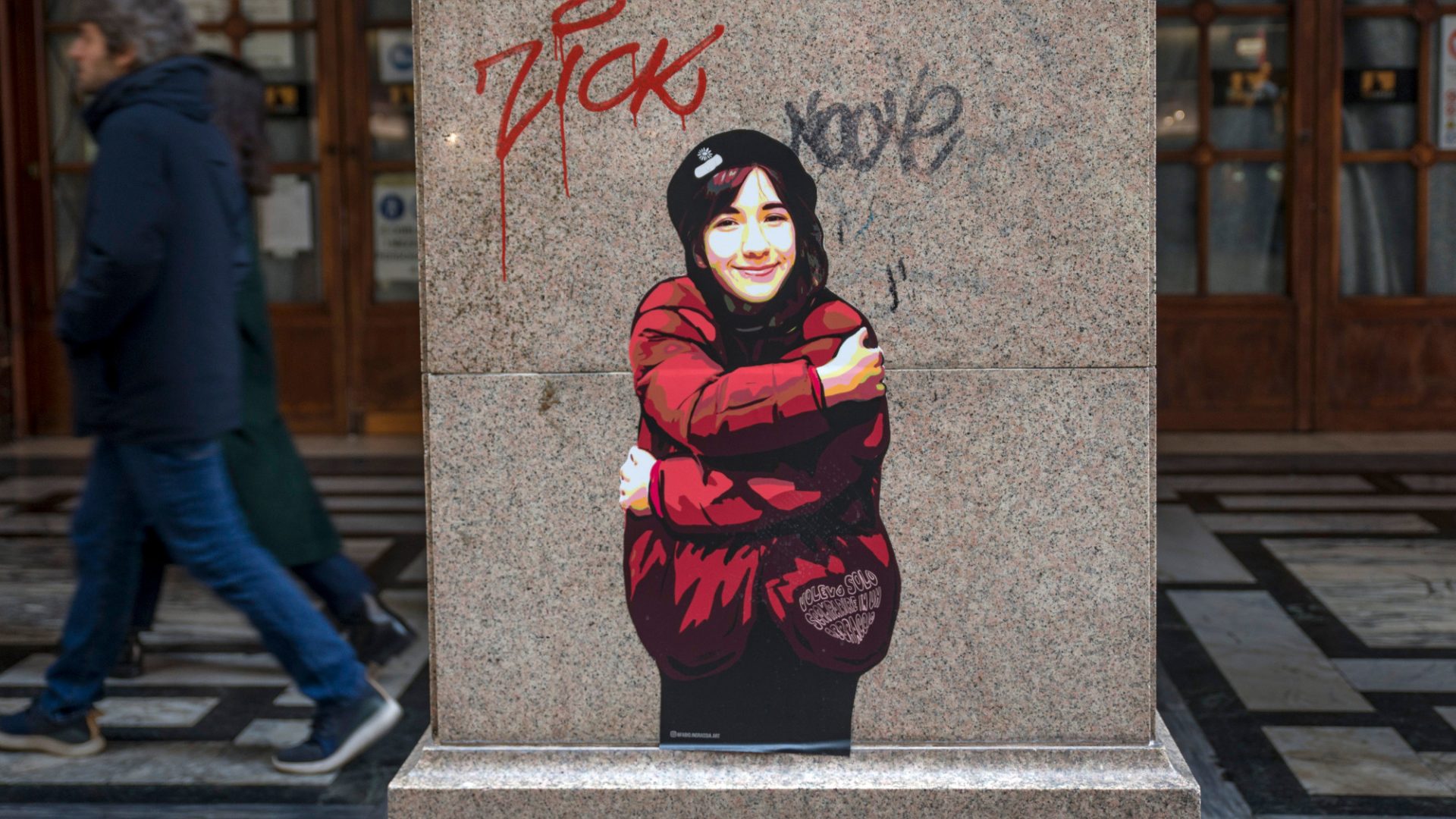It was a typical Saturday morning in the university city of Padua: buyers haggled at the daily market in the Piazza dei Signori. And then hundreds of activists with placards and banners poured into the square, chanting “Justice for Giulia”.
The name they were chanting was that of Giulia Cecchettin, whose body was found in a gully near Lake Barcis on November 18, 2023, a week after she was reported missing. She was wrapped in plastic bags and had over 70 stab wounds.
“Giulia was a perfect girl who was studying with a good family,” her father, Gino, told me when I spoke to him. “My family was perfect. I never thought it would happen to Giulia, and I never thought this would be my problem. We can’t forget her.”
At the age of 22, Giulia became the 105th Italian femicide victim of 2023. Her ex-boyfriend of around a year, 22-year-old Filippo Turetta, confessed to killing the biomedical engineering student, who was about to graduate from Padua University. He was arrested near Leipzig after fleeing the country. A year later, on December 3, judges at Venice’s criminal court sentenced him to life in prison.
“Nothing can bring Giulia back, so I’m not happier or sadder than I was yesterday,” her father told the Italian press outside the court following the sentence.
Gino, now 54, comes from Vigonovo, a town near Venice. Giulia’s mother, Monica, died in 2022. Their son, Davide, is 18 and their other daughter, Elena, is 25. Each of them has played their part in bringing the topic of femicide to the forefront of the national conversation, particularly Elena. Her argument, that Turetta “wasn’t a monster, but a normal son of patriarchy”, was a view that struck a nerve here in Italy, sparking protests up and down the country.
Gino wanted to do something with the profits made from his book, Dear Giulia. What I’ve learned from my daughter, and so two months ago they launched the Giulia Cecchettin Foundation.
They hope to educate young men and women in schools and universities about violent relationships, how they start and what to look out for. So far Gino has visited 10 secondary schools and universities, and said the majority of young people who attended his talks were keen to learn.
“Filippo was a university student, but his behaviour was shaped by the patriarchy,” Gino says. “Young men nowadays are influenced by so many other figures, such as on social media.
“What’s scarier is that some girls think that this kind of controlling behaviour is a sign of love. Limitation of liberty is not a sign of love, and we want to teach that.
“Education is prevention,” Gino said. “Many people started talking about laws. But I think when we start talking about laws it’s already too late. We need to prevent violence.”
Femicide is still a huge issue in Italy. Giulia was one of 120 women killed in 2023, with 99 deaths being the most up-to-date figure for 2024. The youngest of the 99, Aurora Tila, was only 13 years old when she was allegedly pushed by her 15-year-old ex-boyfriend from the seventh floor of her apartment building in Piacenza in October.
What’s more, the Italian government has made cuts to resources for violence against women. On the launch of Giulia’s foundation, Giuseppe Valditara, the minister of education, controversially remarked that the patriarchy no longer existed and that the rise in violence against women was due to irregular immigration.
“He said he was misunderstood. The main thing is that we both want to fight against violence, as violence against women should be apolitical,” Gino says of his meeting with Valditara. “But what the government is doing now is not enough, as resources are limited.
“There is always a choice in life. When I heard that my daughter had been killed, I didn’t want to give power to anger or revenge. Giulia used to say to me, now is not the time to be angry or vengeful, it’s time to love more. That’s given me strength through this.”
Jessica Lionnel is a freelance journalist living in Rome




